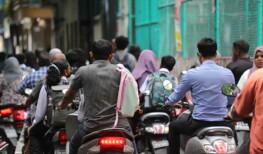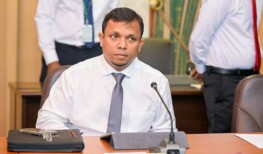Maldives Should Stop Paying “Double” Pensions – World Bank Economist
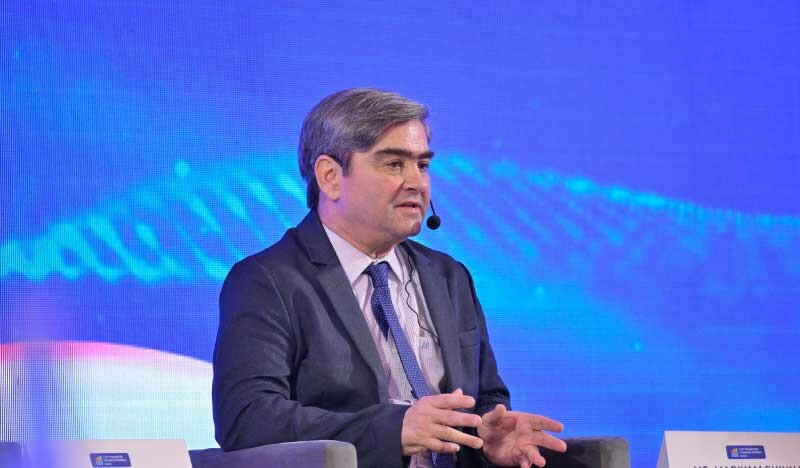
Photo: Maldives Finance Forum
World Bank economist Robert Palacios has called for the temporary suspension of unfunded “double” pension schemes to ensure the sustainability of the Maldives’ pension system.
Palacios – who played a key role in the 2009 pension reforms in the Maldives – stated that the current pension system is not operating sustainably.
He made these remarks while presenting on the history of the pension reforms in Maldives at the Maldives Finance Forum held in Kurumba yesterday.
He pointed out that the introduction of an old-age pension and addition of unfunded “double” pensions since 2009 has led to the current unsustainable state of the pension system.
“Double” Pensions
The issue of the unfunded “double” pension schemes was highlighted by various speakers at the forum. These pensions are provided to institutions such as the police, army, judiciary, and independent commissions.
These schemes operate under laws separate from the Maldives Retirement Pension Scheme, allowing employees in these institutions to benefit from both the unfunded pension and the state-funded pension.
Currently, 13 agencies in the Maldives offer double pensions, with the largest expenditures in the army and police.
When asked for his input based on how other countries have dealt with this issue, he replied; “I’ve never seen a double pension in another country”
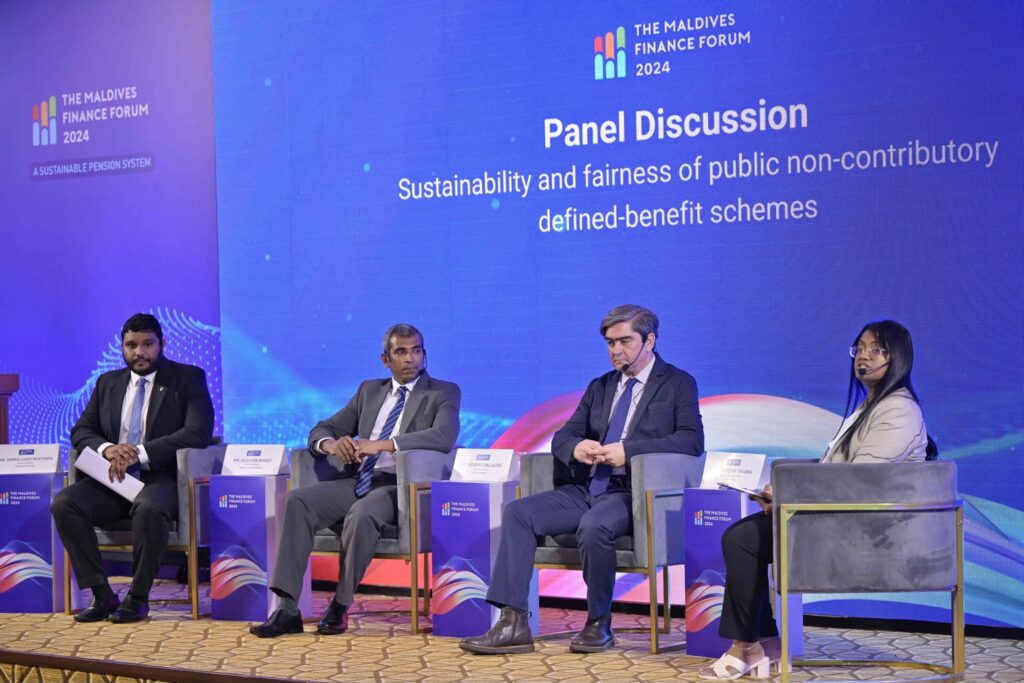
At the forum, Deputy Minister of Finance Ahmed Saaid Musthafa also underscored the financial strain these unfunded schemes place on taxpayers.
“The Maldives Retirement Pension Scheme was developed with good intentions, and the state pension for old age, although perhaps it has now enlargened to a very high level, provides a useful safety net for people in their later years,” Musthafa stated.
“However, it’s been our inability to regulate unilaterally, almost invented schemes rising out of thin air in certain institutions and commissions that has no coherence,” he said.
Musthafa illustrated this issue with an analogy of two individuals who graduate from the same university with the same degree but join different institutions – one to the civil service and the other in the security apparatus.
“Twenty years down the line, when they are at the age of 40 to 44, one gets to enjoy a one million rufiyaa payout and lifetime benefits while the other wouldn’t even have the ability to retire,” he explained.
Pension For The Wealthy
In his presentation, Palacios also suggested eliminating state pensions for the wealthiest 10 or 20 percent of the population. He cited examples from countries like Australia and Chile, which have introduced affluence tests to exclude the richest from receiving state pensions.
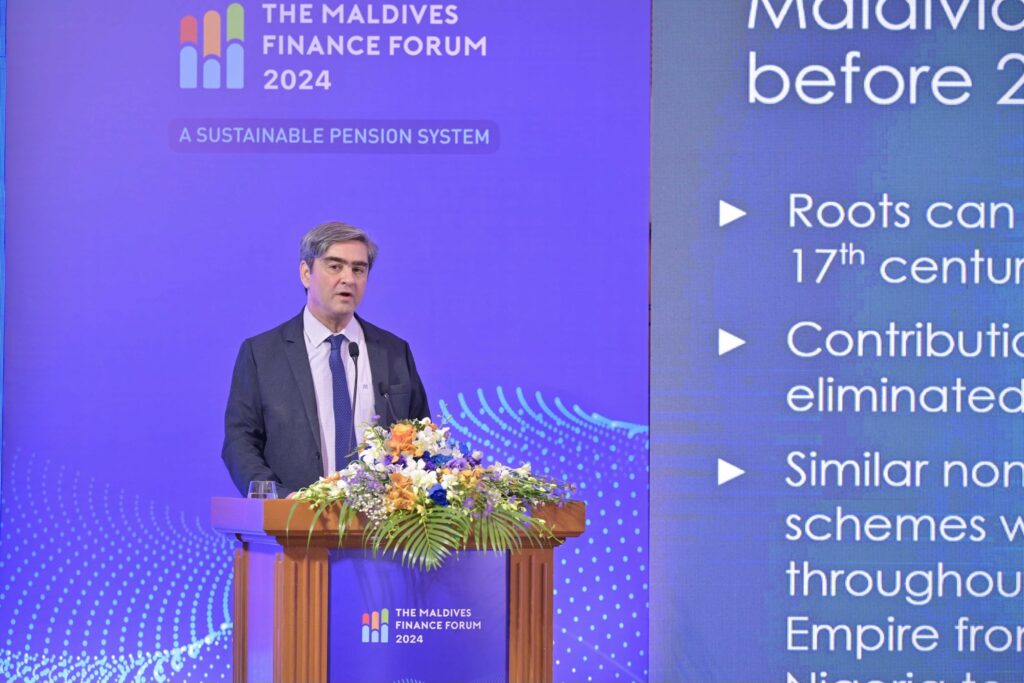
“We’re talking about eliminating those at the very top who really don’t need it. We used to say Bill Gates don’t need to have a pension, We don’t need Mukesh Ambani to have a pension,” he said
“The principle would be to apply an affluence test, as done in Australia with assets or other methods used in Thailand. That would be one thing to consider to save money,” Palacios said.
He warned of the potential consequences of not implementing such measures.
“If you are to continue to spend benefit levels and not have any targeting or testing for affluence, it’s going to become a time bomb and it’s going to be a promise that somebody is going to break in the future in a violent way, the way it happened in eastern Europe.. You dont want to wait till the crisis hits. “
The forum extensively discussed how to reform the Maldives pension scheme to address the country’s fiscal and economic challenges, featuring various presentations and panel discussions from state institutions.





